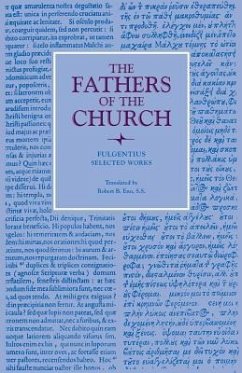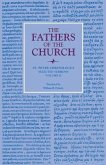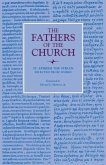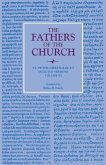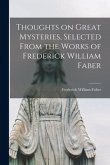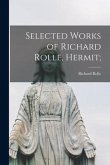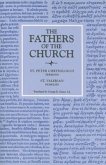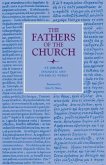Fulgentius, bishop of Ruspe (ca. 467-532), is considered the greatest North African theologian after the time of St. Augustine. When Fulgentius was born, North Africa had been under the rule of Germanic Vandals for several decades. His family was repeatedly victimized by Vandal persecutions, and Fulgentius himself suffered persecution and exile. While in exile, he continued his pastoral labors and became the theological spokesman of the displaced. Though he was not an original thinker, he propagated the Augustinian heritage and defended it against its adversaries, notably the Arians and Pelagians (or semi-Pelagians). With thorough understanding and conviction, Fulgentius promoted the Trinitarian theology of Augustine. He also defended and explained Augustine's difficult and controversial stance on the question of predestination. Fulgentius contributed greatly to the transmission and interpretation of a theological heritage that would dominate and shape the Church in the West for hundreds of years to come. Unfortunately, many of Fulgentius's writings have been lost. Of those that have survived, the most important are dated to the period of his second exile and the sixteen years from his return to North Africa from Sardinia until his death. This volume gives English readers for the first time an opportunity to study a representative selection of the writings of this early sixth-century author. It also presents Fulgentius's biography, the Life, for the first time in English. Robert B. Eno, S.S., late professor of church history and theology in the School of Religious Studies at The Catholic University of America, wrote on various patristic topics. He was the author of Teaching Authority in the Early Church, a volume in the Message of the Fathers series, and he served on the editorial board of the Fathers of the Church series.
Hinweis: Dieser Artikel kann nur an eine deutsche Lieferadresse ausgeliefert werden.
Hinweis: Dieser Artikel kann nur an eine deutsche Lieferadresse ausgeliefert werden.

